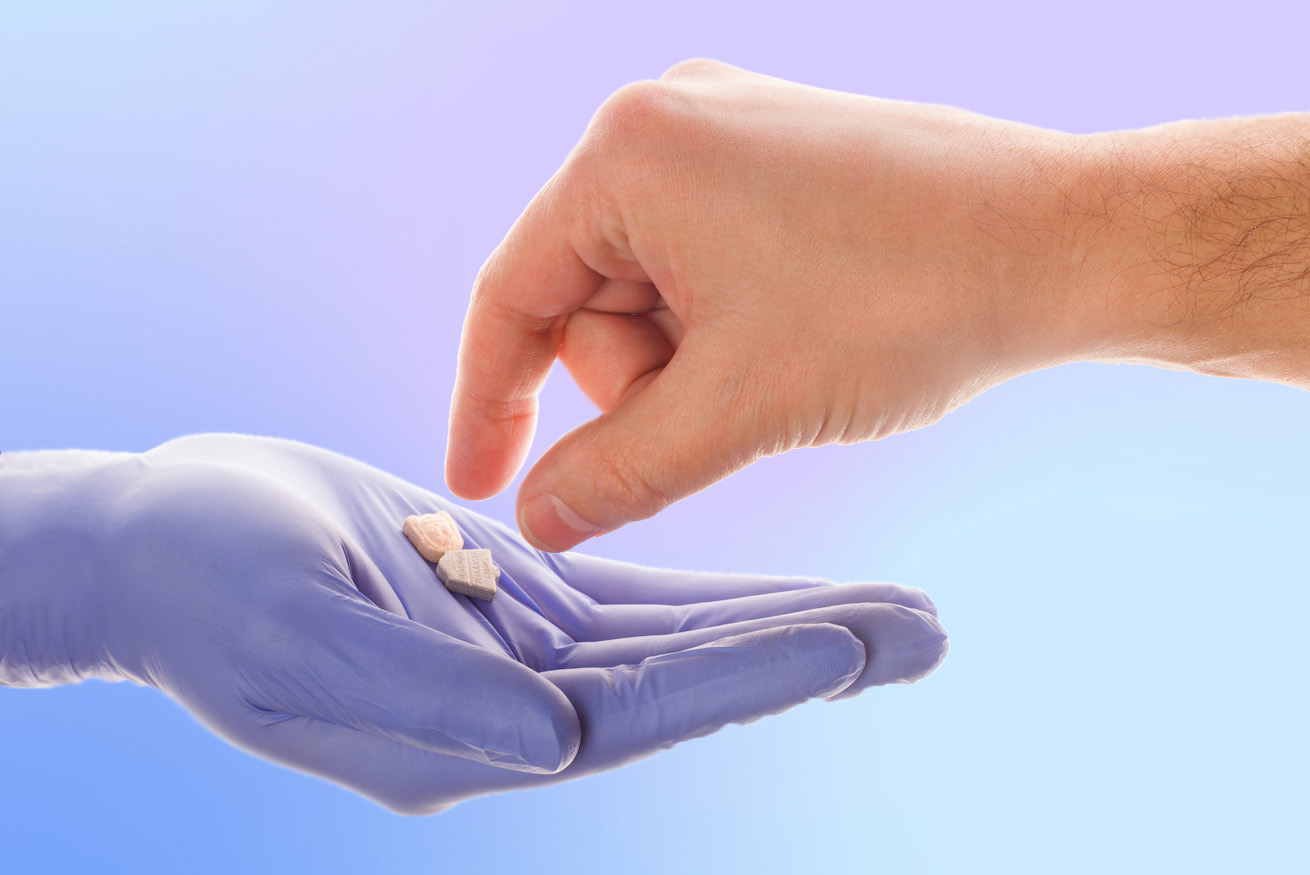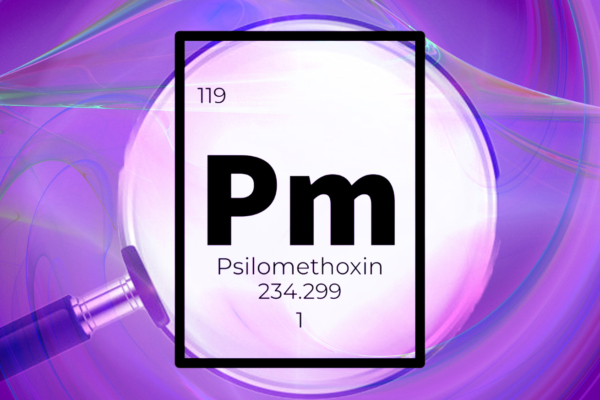
MAPS, long a leader in medical psychedelics research, has recently attracted scrutiny as multiple potential ethics scandals erupted into the public eye.
First, there was video footage released by New York Magazine podcast, Cover Story: Power Trip, which showed two MAPS-sponsored therapists inappropriately touching and cuddling their sexual-assault-survivor PTSD patient during an MDMA-assisted psychotherapy session.
Next, it came to light that Health Canada, the Canadian equivalent to the FDA, is launching a review of all MDMA clinical trials in the country in response to a complaint made to the organization. The complaint, as first reported by the CBC, alleges that several PTSD patients in the MDMA trial experienced worsening suicidal thoughts which were wrongly not reported as “adverse events”.
Finally, last week, STAT published an investigation into MAPS board member Vicky Dulai. The investigation highlighted a now-settled lawsuit that alleged that Dulai manipulated a wealthy and elderly venture capitalist to give her gifts worth more than $4 million.
Before diving into the details of each scandal, it is worth briefly recapping the history of MAPS.
Who Is MAPS?
Founded in 1986 by psychedelics advocate Rick Doblin, the Multidisciplinary Association for Psychedelic Studies is a nonprofit organization that aims to raise awareness of the benefits of psychedelics and research their medical applications.
When MAPS was founded, most psychedelics were not only illegal, but highly stigmatized. Through decades of pioneering work, MAPS played a central role in scientifically proving the high safety profile of psychedelics, and recently they have published studies showing potentially revolutionary mental health applications of compounds such as MDMA. This has helped lead to the destigmatization of psychedelics, and it now looks likely that MDMA and psilocybin could be made legal in medical contexts within a few years.
As such, Rick Doblin is now treated like a rock star in the psychedelics community. When I attended the Microdose Wonderland Psychedelics conference, despite there being actual mega-celebrities such as Mike Tyson in attendance, it was Doblin who was treated like the king of the event.
This is what makes the current trio of scandals so significant. These aren’t accusations against any random psychedelics company, but rather, against what many consider to be the central institution of psychedelics research. One can philosophize MAPS as the scaffolding upon which the entire psychedelics industry is built.
An Allegation of Sexual Assault
Of the three scandals, by far the most clear-cut example of moral failing is first. As part of MAPS’ Phase 2 clinical trial assessing the efficacy of MDMA-assisted therapy in treating PTSD, married investigators Dr. Donna Dryer and Richard Yensen were assigned as therapists to the PTSD patient Meaghan Buisson. Of the two, only Dr. Dryer was a licensed therapist, though assuming Yensen followed Dr. Dryer’s lead, this would follow protocol.
In the recording of the therapy session, at times the two therapists can be seen pinning Buisson down to the bed, cuddling and spooning with her, and even blindfolding her at a time. Knowing that Buisson’s trauma stems from sexual abuse, it is hard to see how this was considered a good idea. At times, Buisson was visibly uncomfortable by Richard Yensen’s touch and presence, trying to move away from him.
It is clear that lines were not only crossed, but ignored altogether.
At one point Yensen is on top of Buisson, holding her down while she is in obvious anguish. Talking with the CBC, she said, “This is horrific. This happened in a Health Canada-approved clinical safety trial… For that to happen in this environment, under far more scrutiny than the substance will ever again be under, is extremely troubling.”
Compounding the issue further, Richard Yensen has admitted to having sex with Meaghan Buisson, though he claims that it was consensual. Even if that were the case, it is extremely unethical for a therapist to engage in a sexual relationship with his patient.
Buisson went to the police with the matter, alleging sexual assault. Though the B.C. police recommended charges, the Crown Prosecutors declined to approve them.
It is important to note that Yensen and Dr. Dryer clearly did not follow the MAPS protocol, which does allow for touch, but only in a limited manner such as hand-holding. In 2019, in response to the investigations, MAPS cut ties with the couple and released a statement saying that there had been an “inappropriate and unethical” sexual relationship. They also made clear that the therapist couple violated MAPS’ Code of Conduct.
Despite this, however, it was also revealed that MAPS didn’t actually review the tapes of the therapy sessions when the allegations were first made, but rather in 2021, two years after the complaint.
Reflecting on this case, it is clear that there were gross ethical violations on the part of Dr. Donna Dryer and Richard Yensen. As to how much moral failing may be attributable to MAPS is questionable. On one hand, they did cut ties with the therapists when the allegations were made, as they clearly violated MAPS’ policy. On the other hand, they failed to fully review the case at the time.
As for Meaghan Buisson, she believes the blame extends beyond solely her two therapists. In a recent interview, she said, “This is not a problem of two bad therapists. This is a system that is in place that is allowing individuals such as Richard Yensen and Donna Dryer to be in those treatment rooms and to do what they did.”
All Canadian MDMA Trials to Be Reviewed
While the above story is certainly disturbing, it is but one isolated incident. If that is where the story ended, then the saga could be written off as a case of two bad therapists.
Unfortunately, on April 8, it became known that the Canadian regulator Health Canada has received a complaint against MAPS, and is launching a review of “all trials involving MDMA to ensure patient safety and compliance with regulations.”
This complaint includes the experience of Ms. Buisson, but goes further, alleging that several MAPS clinical trial participants developed increasing suicidal thoughts, and yet these instances were not documented as “adverse events.” It also claims that MAPS purposely mixed data from many different small studies with widely varying methodologies to create favorable results.
While the contents of this complaint certainly are disconcerting, both the veracity of the complaints and the consequences of it are still unclear.
On the first part, the CBC found three MAPS trial participants who claim that they “experienced a sharp spike in suicidal thoughts during or immediately after the trials.” So, at a minimum, it does appear that for at least a few individuals, the complaint holds water.
This is not to say that MAPS purposely recorded incorrect data. At least one of the three saw their spike after the trial, so it would not have been included in the results. MAPS does encourage participants to complete long-term follow-ups, which would capture events such as this.
Furthermore, it is also possible that for those who did not get better but were recorded as having done so, the problem may lay with the measurement system, rather than lapses in moral judgment. MAPS primarily uses the Clinician-Administered PTSD Scale (CAPS) to rank the severity of PTSD, the most commonly used metric. And as at least one participant told the CBC, though their reductions on the CAPS scale showed that they no longer qualified for a diagnosis of PTSD, they still felt like they suffered from it. In short, measuring mental sicknesses can be difficult.
Likewise, the consequences of the Health Canada review are still unclear.
Speaking with Psychedelic Spotlight, a representative of Health Canada said that they have “requested additional information from the sponsors [MAPS] regarding adverse events, efficacy data and complaints from participants.” They added that the “Department will take appropriate action as necessary if any deficiencies or non-compliance are found.” Earlier, they told the CBC that the “priority in Health Canada’s review will be on-site inspections.”
As for now, it appears that all MAPS-sponsored MDMA clinical trials are continuing, perhaps just with more scrutiny.
For their part, MAPS is defending its trials. Spokesperson Betty Aldworth told the CBC, “We continually evaluate our training and drug development programs, making adjustments as appropriate to help maximize safety and benefit to participants.”
It is also important to recognize that even if there were problem cases, the potential for MDMA therapy to treat PTSD is still very exciting.
In order to have a new drug legalized for use, it must pass through two Phase 3 trials with positive results. In MAPS’ first Phase 3 trial, 88% of participants had a “clinically significant reduction in symptom severity” as defined by a 10-point drop in CAPS. Furthermore, 67% of participants in the MDMA-assisted therapy group “no longer qualified as having a PTSD diagnosis”.
Even if due to measurement issues the results are not quite as positive as portrayed, they are still very positive.
MAPS launched a second Phase 3 trial this year. It is unclear if their protocols will change at all in response to this current situation.
A Scandal on the Board?
The last scandal we are discussing does not involve MAPS itself, but rather one of its board members, Vicky Dulai.
On April 21st, STAT published an investigation looking into her relationship with wealthy venture capitalist George Sarlo, who is worth more than $100 million.
A survivor of the holocaust, and Hungarian fascism and communism, Sarlo has battled with depression his whole life.
According to the STAT article it is alleged that to help manage this, about a decade ago, through Dulai, his assistant and later lover, Sarlo began experimenting with psychedelics such as MDMA and psilocybin. A trained psychotherapist, Dulai oversaw his administration of the psychedelics.
It is further alleged that over the course of the decade, Dulai would use about $4 million of Sarlo’s money to buy a house, a fancy car, and more. Vicky Dulai characterizes this money as gifts, but Sarlo’s daughters, from whom he was estranged or semi-estranged, claim Dulai manipulated him and committed elder abuse.
Sarlo’s daughters filed a lawsuit against Vicky Dulai, alleging elder abuse. But after they locked him out of his home following a trip to Hawaii and “fired his medical team and wouldn’t let his psychiatrist see Sarlo to assess his mental state,” Dulai with the help of Rick Doblin counter-sued, also alleging elder abuse.
Speaking with STAT, MAPS spokeswoman Betty Aldworth said, “These are unsubstantiated allegations of which we have received no official complaint with any credible facts, related to a civil lawsuit that had nothing to do with MAPS which was resolved with a confidential settlement that we were not privy to.”
While from the outside looking in, it is impossible to judge which side is in the right, but the story does raise important questions regarding the potential abuse of psychedelics in elders, even if that was not the case here.
What Happens Now?
Following a month of scandal, MAPS is continuing to progress its second Phase 3 MDMA for PTSD clinical trial.
Assuming that no new scandals derail this, and the Health Canada review does not turn up any more problems, this should not be delayed by too much.
Looking at the effects these scandals, particularly the first two, will have on the wider industry, I see two.
First, more public scrutiny will be applied to psychedelic clinical trials.
While Health Canada told Psychedelic Spotlight that they are “not considering expanding the review to other psychedelic-assisted therapy clinical trials,” both the public and the media are likely to cover the wider psychedelic space with less euphoria and more balance going forward.
Second, I expect institutions conducting psychedelic clinical trials, such as MAPS but also many public companies like MindMed and Compass Pathways, to redouble their efforts to ensure the highest level of safety and ethics are observed. While the consequences of the current scandals seem muted, for now, if we start seeing more stories like these they could escalate. This would especially be a problem for public companies that live and die on their stock prices. A bad news story like this for a publicly-traded company could crush their stock.
In sum, MAPS has had a bad month, full of alleged scandals. However, they seem to be weathering them, and if the psychedelics community treats them as learning experiences, the entire industry could strengthen through increased focus on ethics.







